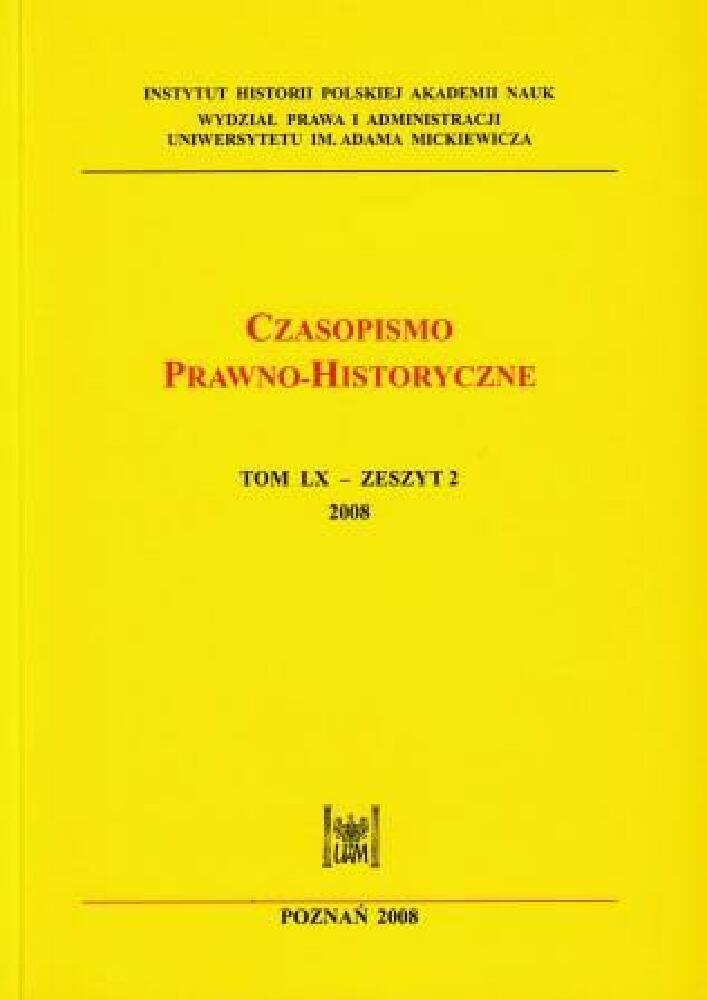Abstract
The Commonwealth of Poland and Lithuania was established in Lublin in 1569. It comprised a total area of about 1 million square metres and lasted as an independent state until 1795. The legal principles upon which its political system was based were derived directly from the provisions of the fundamental acts then binding in the Commonwealth, or were generalisations made on the basis of secondary legislation of the statutory laws, common law, and practice. Those principles determined the political and social system in teh Commonwealth, the organisation of its government, and its activities. The social principles included: the division of the society in the estates, civil liberties of the nobility, equality of the nobility, underprivileged bourgeoisie, serfdom of peasants, tying the state with the Catholic church, religious tolerance, recognition of minority rights. The political ones covered the principle of sovereignty and independence, sovereignty of the nation of the nobles, the principle of mixed (royal and republican) form of government, uniformity of the Commonwealth, separation of powers, the parliamentary system, election of a king, the rule of law, respect for the distinct nature of particular legal regulations, liability of the head of state (king), lifelong terms of office, self-governance, liberum veto and election of judges.
Funding
Digitalisation and OA co-funded by the Minister of Education and Science (Poland) under contract no. BIBL/SP/0002/2023/1
License
Copyright by Faculty of Law and Administration, Adam Mickiewicz University, Poznań, 2008
OPEN ACCESS




